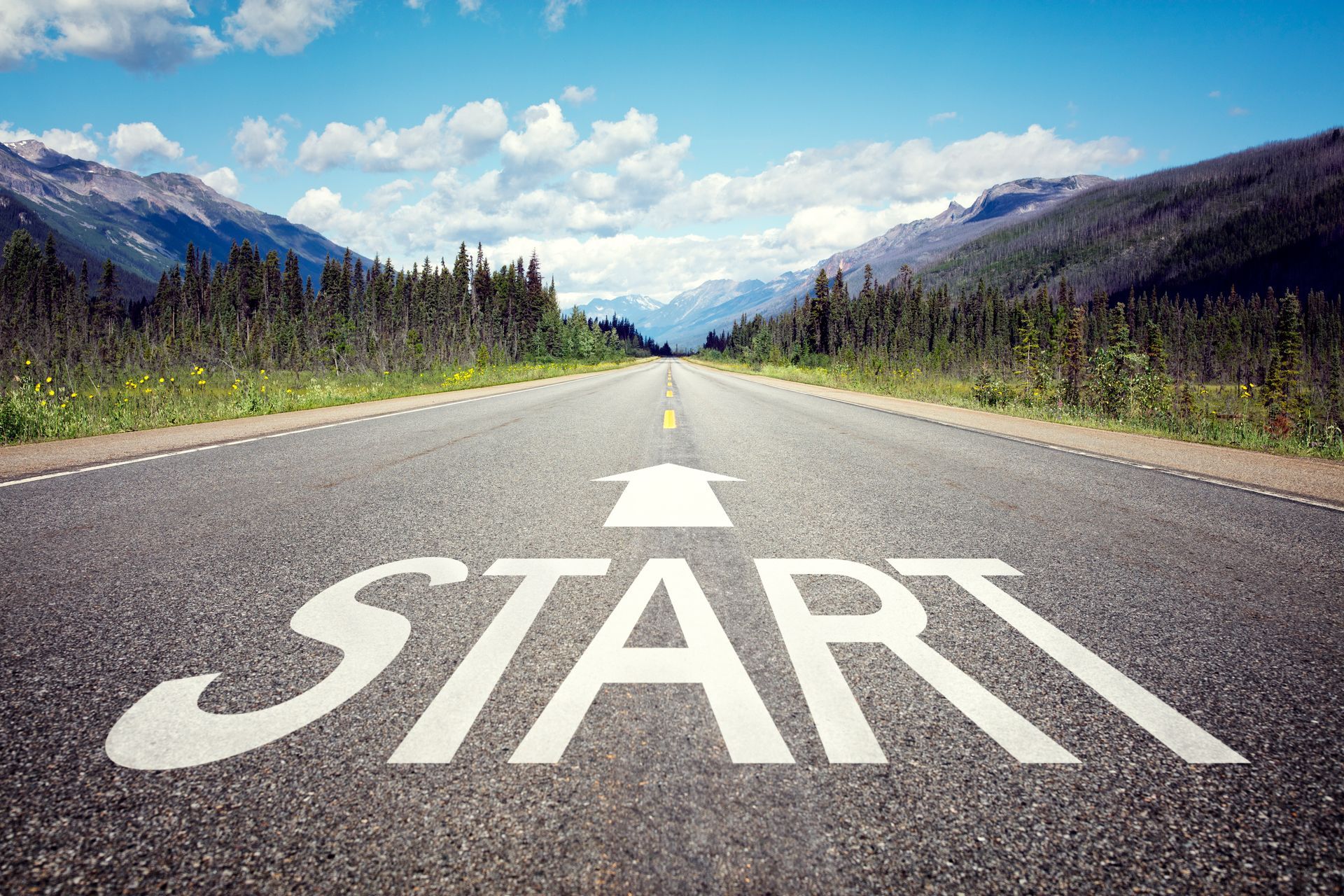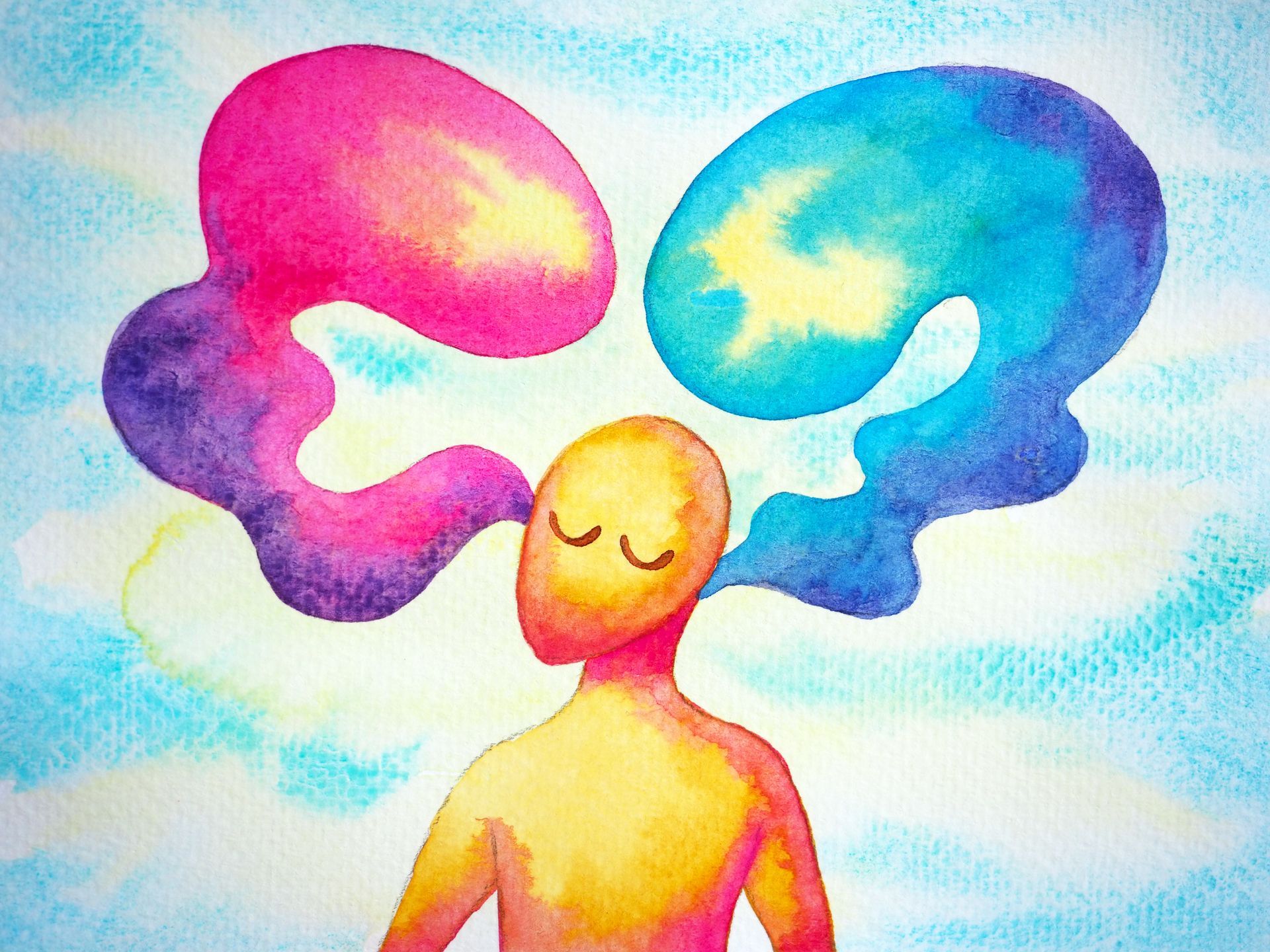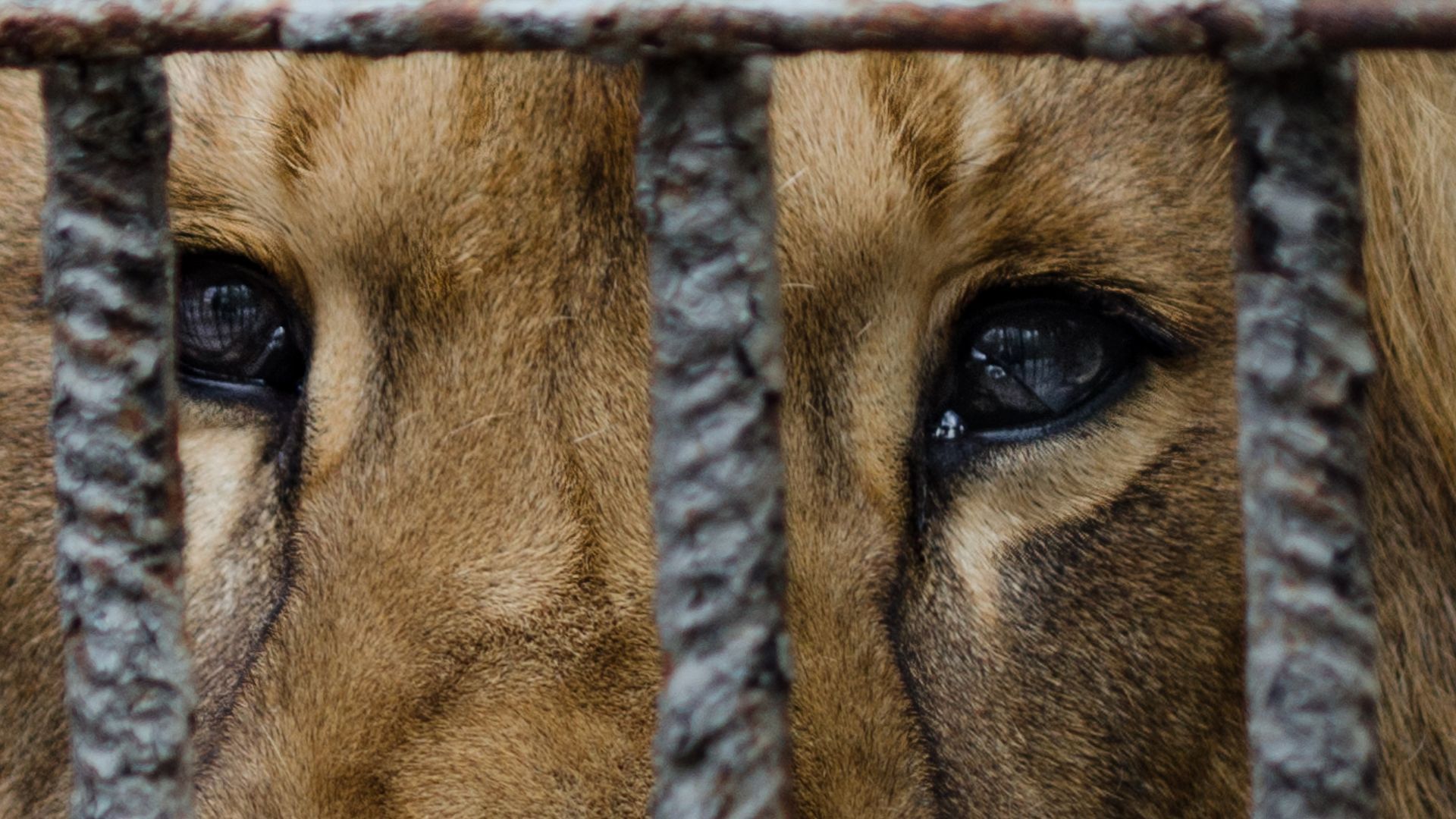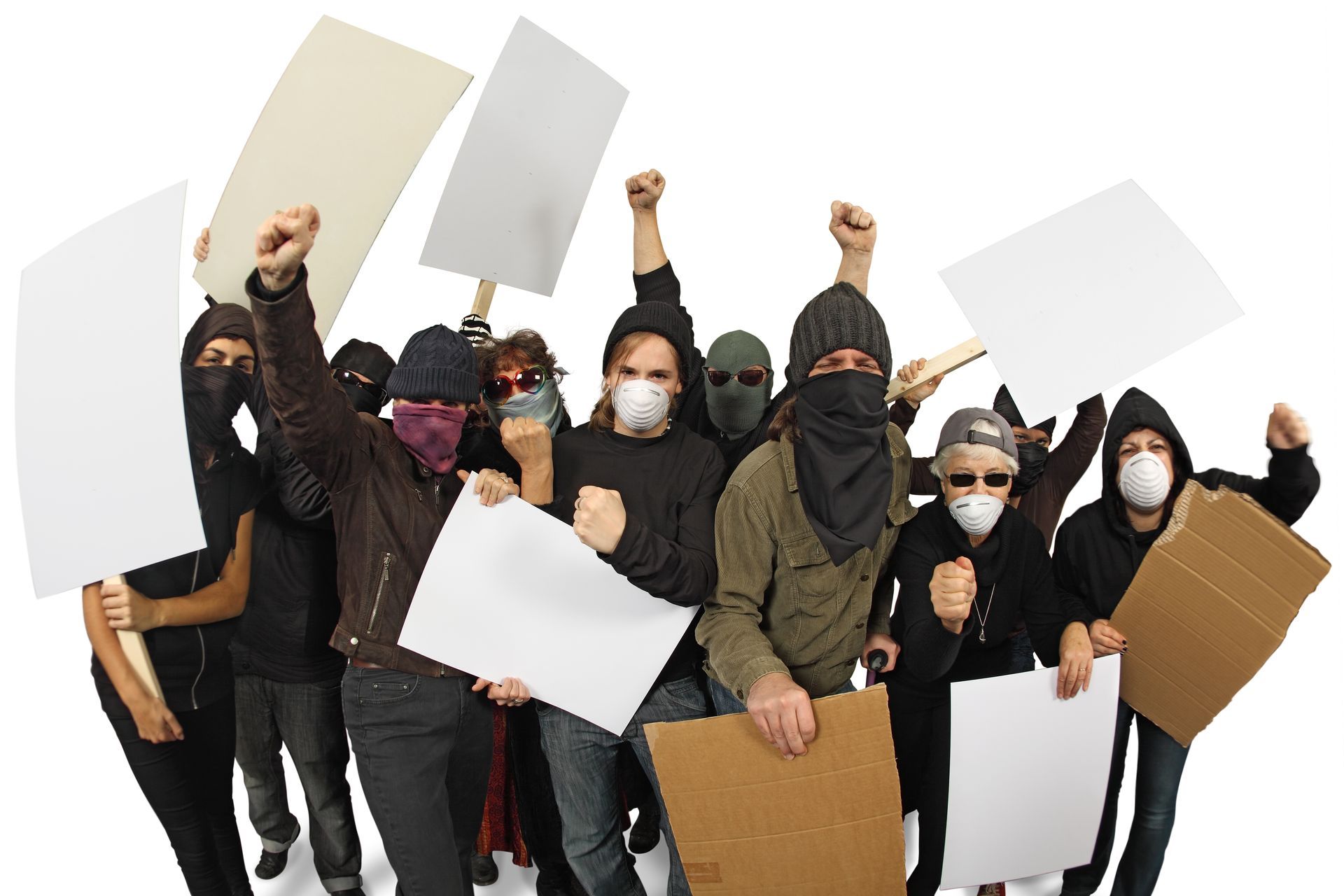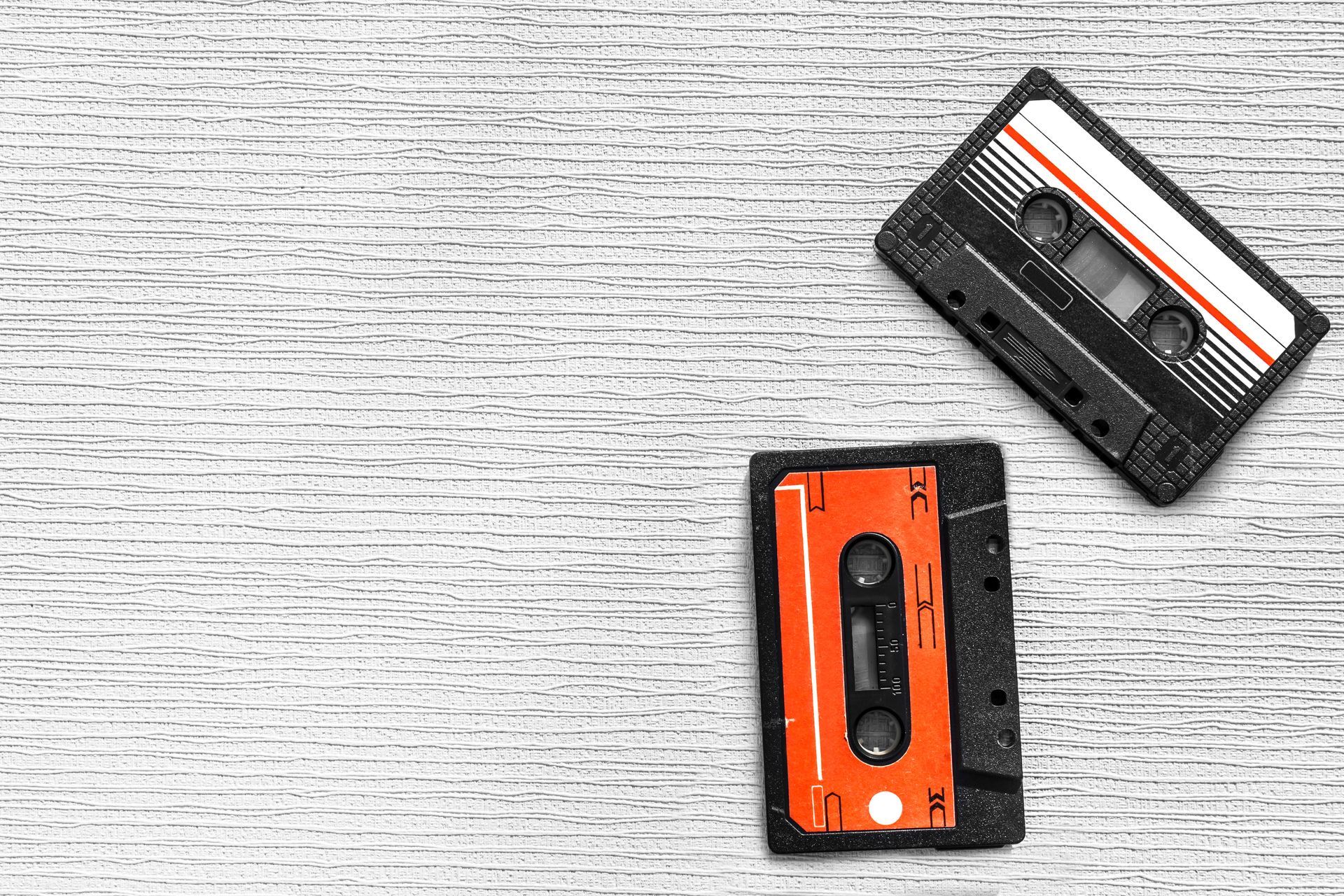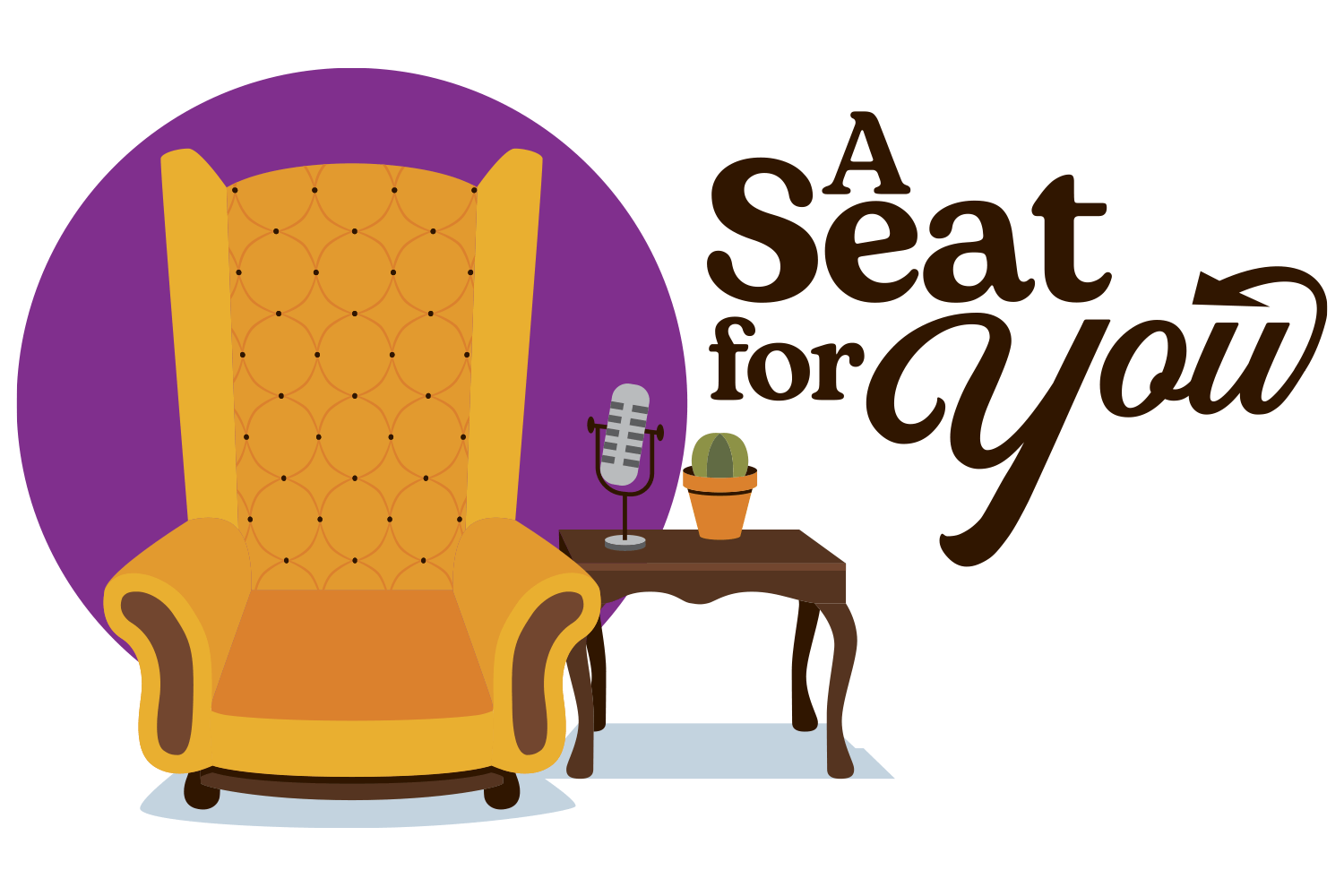Episode 5- Ready, Reset, Go...
April: [00:00:00] So last week we left you with a question, slash prompt, and that question was, what can we do to reset and reframe so that we are not overflowing and overwhelmed with information and so that we can live our lives, uh, joyfully and happily and productively. So Leslie, what, what do you do to reset?
Leslie: Well, it's, it's, I think, more of a challenge sometimes for me because of the type of work that I do. Being in a digital space and having that as a career, , it's not like I can just completely take a break from the phone. , you know, or because I have responsibilities that I have to, to look at, but one thing [00:01:00] that I can do is, take control the volume of, , content that I'm taking in.
So if I'm, if there's certain things that are happening, , that are. Uh, just devastating or like, like what's going on right now in Maui. Like, it's a horrific, heartbreaking situation that you're like, you're helpless. You know? And I could sit there and watch video after video, after video of all the devastation and stories.
But what is that really doing for me besides, you know, or them, or them make, besides making me miserable. So it's like sometimes I have to practice, um, self-control. That's kind of like one of my words for, for the year is self-control and just putting it down or setting limits to the time that I spend on certain apps.
[00:02:00] Because it can just, it can be. You can get sucked in so easily and the next thing you know, like hours have gone by and you're just still sitting in the same place doing the scroll. You know? But sometimes like when you and I are, are sitting around and, and you get on a, a feed of cat videos like.
April: That's fun. Right? Those are refreshing. That's cats and babies.
Leslie: They're, they're fun to scroll through and see the little cats act in a fool or, or singing, you know, or dogs. Yeah. Yeah. I mean, and, and like that's, that's also a way, even though you're on a digital device or you're taking in content,
April: it's a way to regain hope for humanity, right?
Leslie: Yeah.
April: Because, because people are funny.
Leslie: Yeah. You could easily, based on how algorithms work, Get pulled down a black hole of all kinds of things, and which is, you know why I think there is [00:03:00] so much division in this country? Because if the algorithm knows what you wanna see, it's gonna give it to you, right?
And, and, You're just gonna keep getting more and more of it, and you're gonna believe that everybody feels the same way as you do, because I, I mean, look at all these people out here that are feeling the same way. No, that's not reality. Mm-hmm. It's not, it's your reality because that's what the algorithm is giving you, but it's not real world reality.
And so you have to remind yourself of that sometimes and again, look at different. People to follow or kind of go to, people that you like really like and trust and see who they're following and follow some of those people so that you can just get a different type of content that comes in there that might give you a break of seeing like the same stuff, you know, over and over again.
[00:04:00] Um, so that's like one thing that. How about you?
April: Well, I am, I am in that digital space too, creating content for people, um, and designing things. However, I'm not as, chained. I don't wanna use the word chained to it, but I don't have the same res level of responsibilities that you have. So I do have the ability to, when I, when I leave the office, I can absolutely choose to not get back on it, but for the most part, I am on it.
And for me, it's a matter of watching those kinds of videos or putting the phone down. When it's not 400 degrees outside. I love sitting outside and, uh, reading a book of some kind. I love to dive into my Alex l book, How We Heal. And that's a book that's like, it's made for that. It's not made to, and she'll tell you this, it's not made for you to just blow through in one sitting or, rush through to get it done.
[00:05:00] It's one where you work through it and process and then come back to it. So I really like to do things like that or just kind of get, get in touch with nature in some way. I know we like to ride down to the beach sometimes for dinner and just catch a sunset. That's, mm-hmm. Those are really good ways to reset for me.
Leslie: Yeah. As a Gemini, you know, that's, I, I think I'm an air sign or I don't know. I have no idea. Or a water sign. I'm one of the two. And, and, but when you are one of those types of signs being in nature, really kind of mm-hmm. Having your feet touching the ground with no shoes on, you know, whether you go to a park or, you know, like when it's nice out, you sit by a stream.
And read a book, or have a little picnic. I mean, I know those things kind of sound hokey, but that's really, that's to me is joy. I love that. Yeah. That's joy. It's like living in the present moment and just no [00:06:00] responsibility sitting there in nature and just being a part of the ecosystem. Yeah. You know,
April: I haven't gone in a long time, but I love to canoe or kayak or, um, You know, anything or even tubing where you can just, you're forced to kind of not be connected to anything, but you just absorb what's around you and appreciate what's around you and what we still do have in life.
Leslie: Yeah. 'cause I mean, I think we talked a lot about like all the troubling things that are happening in the world, right? But, There still is a lot of good things happening in the world. And that's, that black hole I was talking about is you could get sucked in and thinking that it's, it's all doom and gloom, but you know, there, there are some positives out there and there are good things happening and there are things that you can do to, let yourself feel better.
For me, I'm a helper. [00:07:00] So anytime I can do something for someone else that provides me a spark of joy, like Right. I enjoy doing that. Right. Like,
April: well, going back to the Maui thing, last night you were like, what can we do? How much money can we send? Like what can we do to help? So I think that's also a really great way to kind of take some of the overwhelm off of you because you feel like you need to be doing something.
And we all should be doing something, but we're not all able in the same capacity. But we can send money. That's one thing we can do. We can't all just hop on a plane and go help. That's kind of the last thing they need right now. Right. Um, but they need resources.
Leslie: That'd be the worst thing to do.
April: Yeah. They need resources and so, and anything else that we see going on, find ways that we can at, in some capacity, help in that. That also takes some of that overwhelming, I'm not ever gonna be able to, Help with anything. I'm, it's too big. I can't make a difference. [00:08:00] So, but, but putting forth effort in little ways does make a difference because if everybody does a little, you know, we can, we can change the world that way.
So we don't have to carry everything that we hear on our shoulders like it's ours to fix. And that's my issue. My daughter does the same thing. We carry all of it like, Like what we do is gonna be the change. No, it's, it's everybody putting forth some effort and learning and moving as a unit together to make change in little things.
Little ways, I mean, there's websites galore on how you can get involved in the community or. If you have, you know, extra money to throw away or to give, you know that you would love to donate to a cause. There's some right down the road from you that could really use support and resources or your time or, you know, there's ways to reset in a way that's paying it forward.
Leslie: [00:09:00] Mm-hmm.
I also really like gratitude lists. Mm-hmm. Um, to me that's. That's helpful. It's a great reminder to get into a routine to where, you know, when you wake up in the morning or before you go to bed at night and kind of running through that list of the things that you're grateful for, because it reminds you, it, it's another reminder that not everything is horrible, in this world.
That there actually are plenty of things to be grateful for. , and that that helps you kind of look inward. Because I mean, I think with anybody going through a reset or, trying to, to start fresh or I don't know, a clean slate or something, you know, you have to kind of start with a lowest, uh, the lowest barrier of entry would be yourself, right?
Like look inward and see what are ways that you can help yourself do certain things, like what do you need [00:10:00] to, is it meditation? Would that be something that's helpful or yoga or meeting up with a friend that you haven't met with, like actually in person, going and grabbing a tea or a drink or whatever your preference is.
But like, you know, those are the types of things that build relationship and help you in community. Which I think kind of feeds your soul. Mm-hmm. Which would help you also reset, right?
April: Yeah. I was also thinking when we were talking about the, the cat, the funny cat videos and baby videos that, those are always super funny and I've thought about.
Like those people that make them, I wonder what their, you know, political views are. Where do they, you know what I mean? Like, would I actually like this person? So I think the answer to what we were talking about in the last podcast as far as having conversations with people, but we're too afraid to be in the same space as them, or we don't, we, we just don't want to, we're, we're repelled by [00:11:00] them because of the things that they say.
These could be the same people posting these funny videos that we find hilarious. So I think we have to, we have to connect on different levels first before we can even get into those other conversations. So I think we have to find commonality in the lighter things. Mm-hmm. You know what I mean? You think you have to connect in, in ways that are just regular everyday humanity ways before you can dive into the systems that you both have. You know? Right. So I think that's a key to being able to have those conversations is forget those things. 'cause you need to find where you can connect. Everybody's connected in some way. We all would have something in common with even the furthest person from our corner. And I think finding that, or wanting to find that is gonna [00:12:00] be the key to getting further.
And both sides growing. You can't dive in at the point of stress. You've gotta find a different way in.
Leslie: Yeah. That's, that's a struggle. That's hard. Yeah, because I, I don't think it's possible that anyone that would make such a funny cat video would be so hateful to people.
April: They might,
Leslie: I guess it's possible. I mean, yeah. I don't know. It's, I mean, I know, just hearing that it, it makes me uncomfortable on the inside.
April: Why?
Leslie: Well, but it just shows me that, like, it shows you where work needs to be done. Like, 'cause it's not comfortable, right? So that feeling of, of having to engage in conversation with somebody or build a relationship with somebody on a lighter note.
Yeah. [00:13:00] And then you're like, you're jiving and you're having a great time, and then you find out, oh my God, they have a, they're a complete opposite spectrum of you right now. What? I mean my,
April: but now you'd be more comfortable to like, well, what, what about that is appealing for you? Like, why, why do you believe in this way?
And they can ask you the same question because now you've got a foundation. Yeah. You know, you go back to that story I told in the last one about me just writing a stupid letter to that girl with stupid clobber passage, you know, whatever scriptures I had no foundation built with her. You know what I mean?
And so I had, I, I had barely a foundation built with her and I threw that in and that ....done. You know what I mean? There's no conversation after that. It's. It's gotta start somewhere else.
Leslie: Right. No, I, I agree. I [00:14:00] think, I think for me, the hardest part is, you know, you're like, oh, this person's cool, and Oh yeah, we have, we have some things in common.
And then you find out what they believe in and you're like, How, and
April: it's against your very humanity, right?
Leslie: It's against my existence as an individual. So how do you carry on a relationship after that? Like,
April: well, I'm not saying you have to carry on a full, on relationship, but maybe, maybe you find a way within conversation because it maybe that conversation's never been had with that person.
And. You get to talking and maybe just, maybe it makes them question how they came to that conclusion. Yeah. And then it maybe softens their hearts a little bit and they can, maybe now they have a face to fit with what [00:15:00] they are doing. You know what I mean? Now they have a face and a connection.
'cause I can guarantee you that most of the people that make these laws that. Have to do with people's rights. They don't have a personal face to connect it with in their lives.
Leslie: Yeah. I mean some of them do.
April: Some of them do, but they, you know,
Leslie: some, some of the people making laws have have sons or daughters that are
April: Right. But they're never gonna be able to have a relationship with.
Leslie: Right. And that, I guess, I guess there's two different kind of paths there because you also have people you already have an existing relationship with, and then you find out new information about their beliefs. Right. And you're like, You actually,
April: how can you love me? And think like this.
Leslie: Yeah. You actually have had a relationship that you thought was one way and this new information presents itself and it's like, it just doesn't compute. It's like, how can you say that or believe that? And then still, like, I think [00:16:00] I even said that in the other episode is like, you come to the family function and oh, it's, you know, I still love you.
Like it's not about you. It's just about them and it's like, wait, I am them. Right? So, or you know, you support somebody that is literally trying to make me a, a third class citizen and not have any kind of rights, right. And how do you justify that? How can you look me in the face when we're at these things?
But that's, I'm not gonna get back on that soapbox. So I'm saying you have, you have two situations. You have people that you're maybe just beginning to know or you stumble upon, like let's say at a conference or one of your friend's, friends that you., meet at a party or something like that, and you start talking about, something that's, maybe it's football or women's soccer, or you find something that you root for the same team, or [00:17:00] you're like, yeah, and then you walk outside and they have, a F** Joe Biden sticker on the back of their four by four and, and a American flag sticker that's black and white with the thin blue line.
And you're like, okay, now I know what I'm dealing with.
April: Jesus carrying a rifle,
Leslie: Jesus in his gun. Mm-hmm. I mean, because that's Jesus. So then you're like, Ugh, how do I even. How do I like say, say it is a friend of a friend, right? That's kind of coming into your friend it's not like you see this person on a regular basis, but you know that you're going to be seeing this person more than once or twice a year. Like, okay, let's just make up that scenario. And how, how do you even have conversations with this person knowing? That they believe something so much that they put a sticker on the back of their car or they hang a [00:18:00] flag on the front of their house.
I don't have any stickers on the back of my car. I don't hang flags off of my house. Like, and it is, again, I'm not, I don't wanna come across as it sounding judgy that if you do, you know, because it's fine if you do, but like you're laughing at me 'cause it's fine. It's totally fine. It's totally fine if you wanna.
Hang something off, but like how? How now do I navigate those waters?
April: Well, I think it has to come back to what we expect from the other side. We have to expect from ourselves too. I think we have to have empathy for the other side as much as you don't want to. They come from their own lens and their own context, and they don't know what they don't know.
You know what I mean? So I think you have to approach it in a way that, okay, well they. They've reached this conclusion for a reason. I would like to know what that reason is, but it's not always personal, even though it's personal. [00:19:00] And I think like with some of the things you're talking about, like with family, you know, how are they supposed to, how, how can you say you love me while you also support this?
I think they have a certain context and they don't think of it having anything to do with you. They vote that way for maybe other reasons, but the, the downfall or, you know, the chain reaction of that is that if you vote for this person for this reason, know that this also comes with that. Right? And they're not thinking of that.
They're thinking of the things that they are for, not of the things that they should really be against, but that's what comes with the territory. It comes with the package, you know, and they're not thinking about that. So I think you have to just, you're not gonna want to hear it, but we have to have grace for those people as well.
If we expect them to have grace with us, we have [00:20:00] to also have grace with them. Otherwise, we're fighting the fight that we're trying to stop. We're just doing it in our own way.
Leslie: Yeah, I don't like that answer.
Right. I don't either, but that's just is what it is
because I, I, it's,
April: this is me seeing both sides of things.
Leslie: Right. It's hard for me 'cause I don't, like it is personal. Right. So how do you, like, I guess I have to learn how to take, take that out of the equation. But how do you take, because it's, it's not like, let's go back to football. And back when I was younger, I really rooted for the Gators University of Florida Gators, and there'd be people at school that rooted for F S U and I. Ugh. Like I can't even be in the same room with you, right. , And just not even gonna, or Alabama fans or Tennessee. Ugh, any, [00:21:00] okay. So anyway, I guess I still have a little bit of that in me a
April: little bit.
Leslie: However, if you did stumble upon someone who you found out went to the University of Alabama and, but you had a good conversation, like, okay, that's nice, like, We have a little bit of friendly rivalry, like we can banter back and forth about the teams or whatever.
Kinda like Bryce with Pittsburgh Steelers, like, I can't stand Pittsburgh for personal reasons. You know, he loves Pittsburgh. The Bucks play Pittsburgh. Occasionally one team might win. I it's just, it is what it is, what it is. I guess not anything. I'm not gonna hold that against him and hopefully he wouldn't hold that against me, that we root for a different team. Right.
April: Well, I hope not. 'cause that's super petty.
Leslie: Exactly. But when it comes to like someone who chooses to participate in [00:22:00] activities that actually take people's rights away, and you're one of those people that's not, A friendly rivalry over a football game that is, you're coming after me like you are telling me you're better than I am because you deserve to have the rights you want, but I don't How, how can you sit across a table and have friendly conversations with people that feel that way. Like how do you even approach that conversation to, to get them to think that it does personally impact me?
April: Yeah. Well, I think that you would just, you have to tell them.
Leslie: Yeah. And I, I feel like that's something people are [00:23:00] scared of because they don't like confrontation.
And it's not politically correct to talk about, politics or religion or certain conversations or just like taboo conversations to have. Yeah. Um, I guess they could just have a podcast.
April: They could
Leslie: then, they could share their own, right. Because this is our podcast,
April: the most passive aggressive way possible,
Leslie: and they get to say what we wanna say.
April: Right,
Leslie: right.
April: So back to our main topic. What else do you do to reset?
Leslie: Did I get offset there?
April: Nah.
Leslie: Um, I try to journal. I'm not the greatest at it. Because I think for me, like sometimes I would just rather disconnect and like find a TV show that I wanna watch.
April: Yeah. I love to watch murder [00:24:00] mysteries. Yeah. That relaxes me and I don't really know why. Maybe that makes me a serial killer.
But, um, if you haven't watched Truth Be Told on Apple tv, it's fantastic. And I'm upset that they decided that a fourth season was not going to be, On par with what their vision was. I feel like that's a really dumb reason to not continue. But it's really great and , it brings me joy.
Leslie: Yeah. I think brings more joy than journaling.
So, yeah, I think those are some, you know, some things that. You know, the getting outside the, disconnecting, trying to meditate, maybe reading like
April: right. I really love to make a cup of tea with my book. And just kind of go somewhere where I can be a little bit alone. If you have kids, that's sometimes a challenge, but, sometimes you can, you can find some time, even if it's just like [00:25:00] 30 minutes to just kind of get away. Because outside's not always an option, especially right now.
Yeah. But, and breathing, like breathe.
Leslie: I think we forget to breathe.
April: Yeah. Or going to get a massage, but that's kind of an expensive way to reset.
Leslie: Yeah. Yeah. I mean, just I, sitting in your chair at work and closing your eyes for one minute and taking deep breaths could help you reset honestly. Yeah. 'cause you, you know, loosen your jaw, relax your shoulders.
You know, you don't realize how tense you are all the time mm-hmm. Throughout the day. And it's like those little things, it brings awareness, to the present moment. And if you have awareness of the present moment and you're focused on that, it doesn't allow you to have anxiety about the future or the past.
April: Right. Yeah. , I saw as I was. Scrolling this morning. Posted an article about how the suicide rate this [00:26:00] past, I think it was in 2022 or 2021. I don't remember what one of these past couple years. The, uh, suicide rate is at a record high, and I think it whatever year that was in that one year, it was upwards of about 50,000 people in the US by itself.
And it's not a coincidence that all this is. It's just all very heavy. So I think it's just super important to not just reset, but find people to talk to, you know, get into therapy if you need it. Um, it can be scary if you've never been, or if you've been conditioned to think that it's not for you or it's for crazy people.
I assure you it's not. It's actually really super helpful and it teaches you how to navigate your own way through things even after you've talked to them. Um, so yeah,
Leslie: again, focusing on yourself I think is a [00:27:00] great way to make the world a better place. Starting with yourself. Yep. Because the more work you put on yourself, then the more help that you'll be able to give others.
April: Right. You know, like putting on your mask in the plane, they tell you to put your oxygen on first before attempting to help anybody else. Right. So we gotta put our oxygen on.
Leslie: Yes.
April: We would like you guys to share what ways you like to reset, um, when things get overwhelming in your world. So if you could email those in.
Leslie: You'll be able to go to a seat for you, the number four, the letter u.com, and fill out a contact form and you can share with us either via text or you can actually upload an audio file if you would like to. And maybe you'll hear yourself on the podcast.
April: Yeah.
Leslie: All right.
